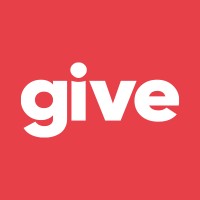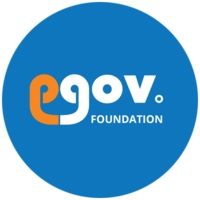
Website UNDP
Background
Diversity, Equity and Inclusion are core principles at UNDP: we value diversity as an expression of the multiplicity of nations and cultures where we operate, we foster inclusion as a way of ensuring all personnel are empowered to contribute to our mission, and we ensure equity and fairness in all our actions. Taking a ‘leave no one behind’ approach to our diversity efforts means increasing representation of underserved populations. People who identify as belonging to marginalized or excluded populations are strongly encouraged to apply. Learn more about working at UNDP including our values and inspiring stories.
UNDP does not tolerate sexual exploitation and abuse, any kind of harassment, including sexual harassment, and discrimination. All selected candidates will, therefore, undergo rigorous reference and background checks.
UNDP has been working in India since 1951 in almost all areas of human development. Together with the Government of India and development partners, we have worked towards eradicating poverty, reducing inequalities, strengthening local governance, enhancing community resilience, protecting the environment, supporting policy initiatives and institutional reforms, and accelerating sustainable development for all.
With projects and programmes in every state and union territory in India, UNDP works with national and subnational government, and diverse development actors to deliver people-centric results, particularly for the most vulnerable and marginalized communities. As the integrator for collective action on the Sustainable Development Goals (SDGs) within the UN system, we are committed to supporting the Government of India’s national development vision and priorities and accelerating the achievement of the SDGs for the people and the planet.
UNDP India’s new Country Programme (2023-2027) builds on our prior work and aims to provide an integrated approach to development solutions in three strategic portfolios:
- Strong, accountable and evidence-led institutions for accelerated achievement of the SDGs.
- Enhanced economic opportunities and social protection to reduce inequality, with a focus on the marginalized.
- Climate-smart solutions, sustainable ecosystems and resilient development for reduced vulnerability.
South-South cooperation, gender equality and social inclusion are promoted across the pillars. The programme is supported by a framework of renewed partnerships and blended finance solutions, strategic innovation and accelerator labs, and data and digital architecture.
You are invited to join a team of future-smart development professionals to support India in achieving the national and globally agreed goals. As part of the UNDP team, your focus will be to work with diverse stakeholders to find country-specific solutions that lead to sustainable development and reach those furthest behind first.
Office/Unit/Project Description
The Pradhan Mantri Particularly Vulnerable Tribal Groups (PVTGs) Development Mission is one of the important programs introduced in the Union Budget 2023-24 to improve the socio-economic status of the PVTGs. The mission seeks to address the development gaps in areas such as health, education, livelihoods, and basic infrastructure for PVTGs, and promote their overall welfare. The government has earmarked a budget of Rs. 15,000 crores to be sourced from DAPST, which will be implemented over a period of three years. Nine Union Ministries to be involved of which Ministry of Tribal Affairs is the Nodal Ministry for implementing this mission. Under this mission, a multi-sectoral approach is adopted to ensure the holistic development of PVTGs, through providing safe housing, clean drinking water and sanitation, improved access to education, health and nutrition, road and telecom connectivity, and sustainable livelihood opportunities. The initiative aims to empower these communities and enable them to become self-reliant.
The Ministry of Tribal Affairs (MOTA) aims to develop the PVTG Development Mission to provide basic infrastructure facilities for PVTG communities and households. The mission will work to establish convergence for integrated and inclusive development in the identified areas of socioeconomic development. To effectively support MoTA in achieving the project outcomes and considering the specific project management requirements at the Ministry level, UNDP is assisting in setting up of a Monitoring and Support Unit to be established within the Ministry of Tribal Affairs. The Support Cell will have a technical team of specialists to provide overall assistance and desired support for Strategic Planning, implementation and monitoring the PVTG Development Mission, coordination and convergence with other Central Ministries, State Tribal Welfare Departments, and linkages with other external stakeholders as well as community members.
UNDP adopts a portfolio approach to accommodate changing business needs and leverage linkages across interventions to achieve its strategic goals. Therefore, UNDP personnel are expected to work across units, functions, teams, and projects in multidisciplinary teams in order to enhance and enable horizontal collaboration.
UNDP proposes to engage a Project Officer – ICT and MIS to design, develop and implement ICT and MIS tools and systems to support objectives of the PM-PVTG Mission. S/He will be a part of the PM-PVTG Mission Support Cell to be established within the Ministry of Tribal Affairs and will ensure engagement of all direct stakeholders and delivery of project objectives, in coordination with the Ministry of Tribal Affairs, when needed.
Duties and Responsibilities
Under the direct supervision of Programme Lead, Tribal Development, and overall supervision of Chief Advisor, SDG acceleration will:
- Provide technical support in the development and implementation of ICT and MIS tools, systems and applications for PM PVTG Mission.
- Facilitate sensitizations of nodal officers (central ministries/State/UTs/Districts/Blocks) and external stakeholders, on PVTG Mission web portal, mobile app, and MIS.
- Provide necessary support to the State/UTs and Central Ministries for data integration and information sharing and support the development of a fully functional information-sharing mechanism.
- Collaborate with the mobile app developer to create robust, reusable, and efficient server-side and frontend components, tools, and functionalities.
- Facilitate training of central and state level focal points on the management of MIS for the sustainability of data platforms.
- Ensure timely and accurate reporting of mission data and indicators using appropriate software tools.
- Provide technical support to the MOTA and UNDP team in the selection and implementation of appropriate ICT and E-governance tools and methodologies.
- The incumbent performs other duties within their functional profile as deemed necessary for the efficient functioning of the Office and the Organization.
Required Skills and Experience
Education:
- Advanced university degree (Master’s degree or equivalent) in computer application, information technology, data science, or any other relevant field is required, or
- A first level university degree (Bachelor’s degree) in computer application, information technology, data science, or any other relevant field in combination with an additional two years of qualifying experience will be given due consideration in lieu of the advanced university degree.
Experience:
- Up to 2 years (with Master’s degree) or minimum 2 years (with Bachelor´s degree) of experience in the similar field – computer application, information technology, data science.
- Experience in network administration, management of hardware and software platforms, telecommunications facilities, knowledge of Windows-based packages/applications is an asset.
- High-level of IT/computing skills (minimum: Microsoft Outlook, Word, Excel, PowerPoint)
- Knowledge of and experience in gender mainstreaming is an asset.
- Deep understanding of Microsoft .Net technologies, architecture, configuration, deployment, and performance.
- Significant application development experience in designing and building applications using technologies like .Net, C#, ASP.net, Webservices and AJAX.
- Experience of developing Systems/ process for online monitoring of various programs/ schemes in Central Government.
- Experience of working in the Government institutions or other international development organization will be an asset.
Required Languages:
Excellent knowledge of written and spoken English. Knowledge of Hindi is an added advantage.
To apply for this job please visit estm.fa.em2.oraclecloud.com.





